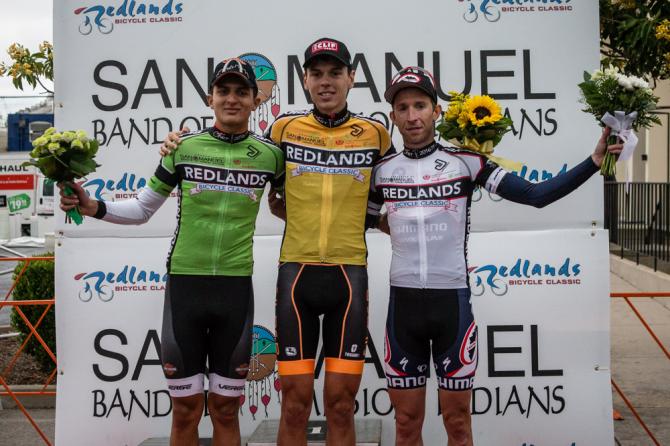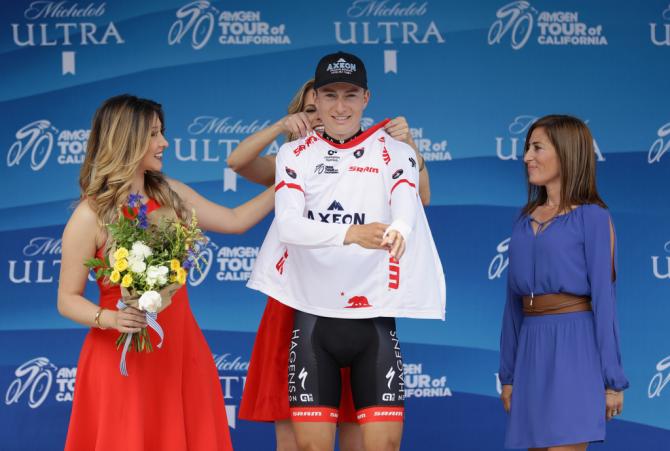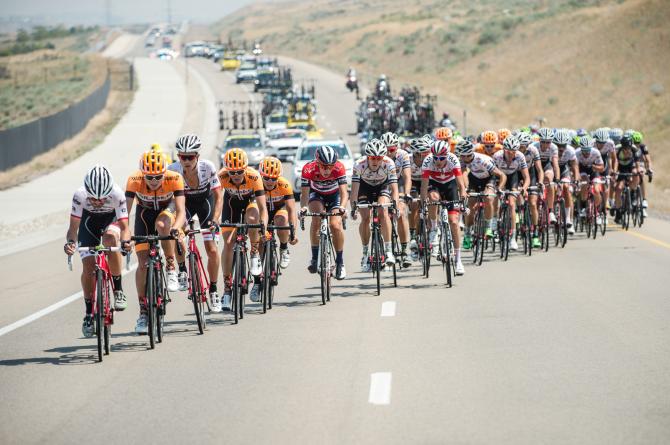US domestic teams' participation in 2017 Tour of California remains uncertain
UCI to address rules for teams in new WorldTour events in Tuesday's Pro Cycling Council meeting
The latest race content, interviews, features, reviews and expert buying guides, direct to your inbox!
You are now subscribed
Your newsletter sign-up was successful
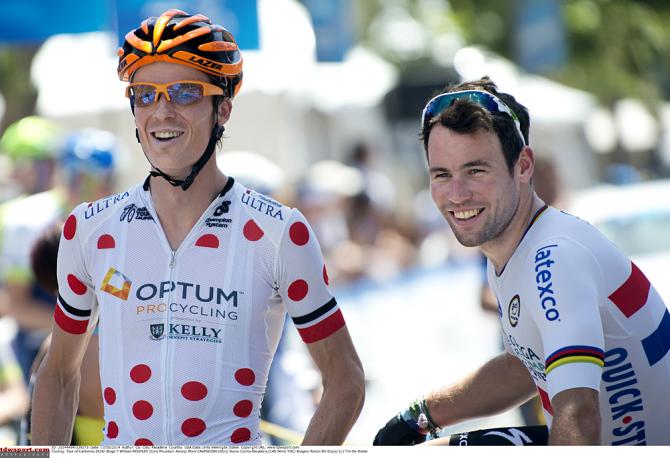
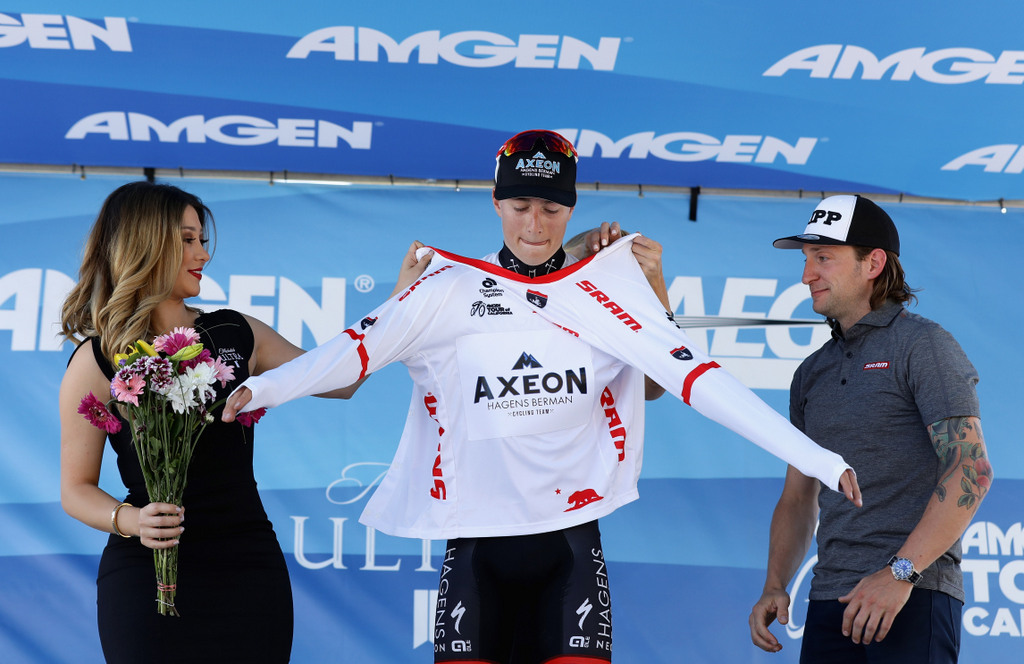
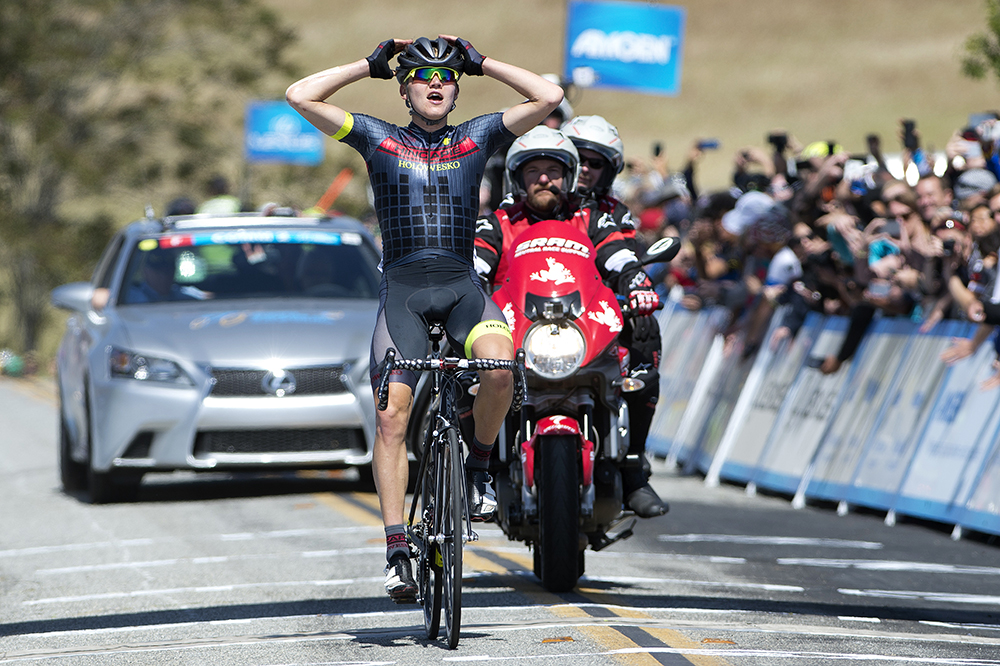
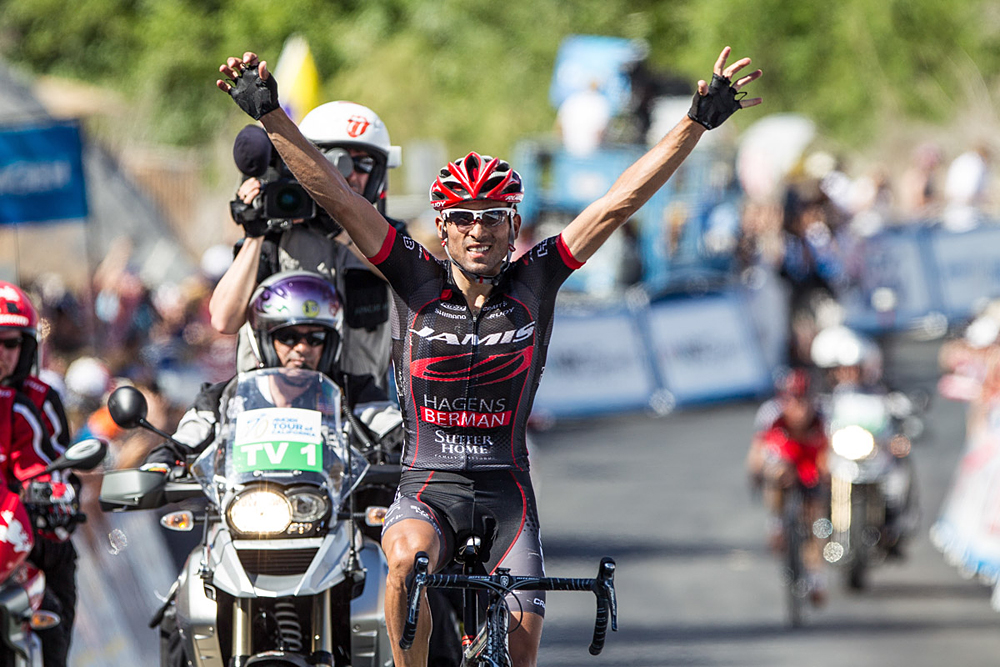
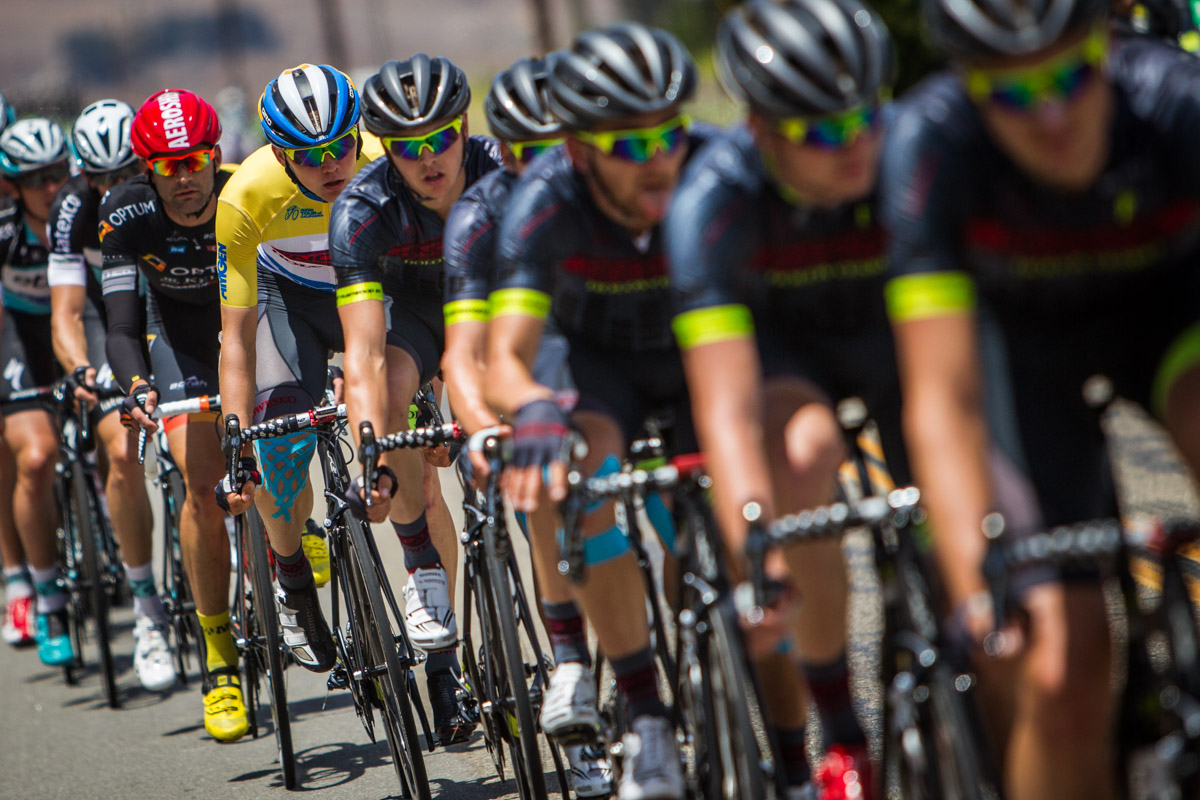
The Amgen Tour of California's addition to the WorldTour in 2017 has been widely received as a positive sign of growth for the 12-year-old race owned by Anschultz Entertainment Group, but the move to cycling's top tier by America's most prestigious stage race has left some US Continental teams in limbo as their participation remains in question.
WorldTour race start lists have traditionally been made up of all the WorldTour teams, plus several wildcard picks from the Pro Continental ranks. Continental teams have not been eligible for cycling's top tier events.
The rules governing participation in races fell into a grey area, however, when the UCI added 10 new races to the WorldTour, bringing the total events for 2017 to 37, with many of them on overlapping dates. To assuage concerns among WorldTour teams about competing in every race on the expanded schedule, the UCI said they will no longer be required to ride the new WorldTour races, and those new events would only need to invite 10 of the 18 WorldTour teams.
A 2017 start list with 10 WorldTour teams would put the Tour of California in line with the make-up of last year's race, which featured 10 WorldTour teams, three Pro Continental teams and five Continental teams. The rules barring Continental teams' participation in WorldTour events have not yet been changed, however, leaving the Continental teams in limbo and concerned that they'll miss out on the biggest stage in North American cycling.
Tour of California organisers and USA Cycling did not respond to Cyclingnews' requests last week for comment on the issue, but some answers could come on Tuesday as many of the "WorldTour reform" details will be up for debate when the UCI's Professional Cycling Council meets.
Growing pains for US cycling
Over its 12-year history, the Tour of California has risen to the top of the heap of US racing, becoming a high-priority target for Continental teams looking to provide a good return on investment for their sponsors. The live TV and media coverage throughout the week is unrivaled in North American racing.
The latest race content, interviews, features, reviews and expert buying guides, direct to your inbox!
For US domestic teams struggling to keep and hold sponsors, gaining invitations to high-profile races like California, Tour of Utah, Tour of Alberta and the now defunct USA Pro Challenge – where they get to compete against select WorldTour teams – far outshines doing well on USA Cycling's national road calendar of lesser-known events.
Mike Tamayo, director for the US Pro Continental team UnitedHealthcare, said California's elevation to the WorldTour level will be painful for Continental teams at first, but once they readjust the move will be an overall boost for professional cycling in the US.
"What's happened over the years is, California became the end all-be-all for every team," Tamayo said. "So you know as ... sponsor, if I sponsor that continental team and I get into California for this amount of dollars, I get some exposure.
"And so what's happened then, is that it's hurt the rest of US racing, because now nobody is taking Redlands seriously or Cascade or Gila or the [USA Cycling Pro Road Tour] or whatever or even Philly and things like that. And so all those races have been downgraded in the eyes of the teams.
"Well now with California on the WorldTour, all those teams have to focus on Redlands, the Gila, the Joe Martins, the Philadelphias. And what happens by doing that is, those races get taken seriously. Those races have better quality fields, more competitive racing, and that's a good thing."
After the initial pain and readjustment period, Tamayo said, some teams will need to develop sponsors that can take them to the Pro Continental level, and some races will jump to the UCI level that allows Pro Continental teams to compete.
"Hopefully this means that California is at the top as a WorldTour race," Tamayo said. "And then the other races that are not UCI come on as UCI 2.2s. Let's see Redlands be a UCI race. Let's see Cascade be a UCI race [in 2017 the Cascade Cycling Classic in Oregon will be a 2.2 race for both the men and the women – ed]. Let's see some of these races step up to a UCI race. And that gives points to the continental teams. That's growth.
"In the long run it's good, but it hurts today," Tamayo said. "Sometimes it's got to hurt to feel good later. And I think in this case it's growing pains."
In a holding pattern
In early August when news broke over consecutive days that California had been elevated to WorldTour status and the USA Pro Challenge was officially defunct, fears that US teams had lost two opportunities for sponsor-pleasing, high-profile races reverberated through team parking at the Tour of Utah, which was going on at the time.
Since then, the emergence of new 2.HC and 2.1 races in Colorado and Virginia has been a shot of good news, but the handful of team directors that Cyclingnews recently spoke with said there has been no news forthcoming about whether their futures will include starting the Tour of California in May.
Axeon Hagens Berman team owner Axel Merckx said he had been in contact with Tour of California President Kristin Klein, who told him race owner AEG was working to find a resolution, but there was no news yet. Nothing had changed since Cyclingnews originally spoke to the directors when news first broke last August in Utah, where all of the directors agreed that not having the opportunity to compete in California was bad news for their programs.
"It's not good news, for sure," Merckx said. "Under the current circumstances and current rules, if we can't do California it's a big disappointment for us. Maybe the rules will change. We don't know. It's still early, and hopefully we'll get support from our federation to lobby for grassroots programs."
Merckx's riders have found great success at the Tour of California, most recently with Neilson Powless' break-through top 10 overall finish. Not only do sponsorship dollars flow from exposure in the California race, it provides the opportunity for Merckx's development riders to show themselves against some of cycling's biggest talents.
"We can't have the rich become richer and the poor disappear, because if you take that away, then you have no future of cycling in the US," Merckx said. "Where is [Joe] Dombrowski going to come from if he doesn't have a team to go through? And not just me. Like [Robin] Carpenter yesterday and Toms Skujins on Hincapie, we've had many riders that have proven they are great competitors in the Tour of California and bring value-add to the race.”
Long time Jelly Belly manager and director Danny Van Haute said losing California would be a "big hit" to his team and for developing professional cyclists in the US.
"That's what the Jelly Belly-Maxxis team does: We develop riders and we move them on. In 16 years we've developed 12 guys who have been in the Tour de France. That’s a big accomplishment for us, and now we're going to lose two races. What do we do?"
Like the other directors, Van Haute said he was waiting to hear how it would all work out, but as of last week he had heard no more news. Holowesko-Citadel director Thomas Craven echoed Van Haute's concerns about how a lost opportunity in California would affect his team.
"We've seen teams go away because they weren't included in California," Craven said. "It's a little worrisome, but you always have to sort of prop the system up everyone once in a while. You would hope the UCI would make some allowances for US teams, that they would be thinking forward and doing something to help us secure sponsors, riders and schedule."
Jumping to the Pro Continental level
One way for current Continental teams to ensure eligibility for the Tour of California would be stepping up to the Pro Continental level. As Pro Continental teams, they'd be eligible for wildcard invitations to WorldTour races under current rules. On the downside, Pro Continental teams are not allowed to enter non-UCI races like Redlands Bicycle Classic and a host of other national calendar events. While that hurdle could be overcome if more races stepped up to the UCI level, the real obstacle for teams making the jump is money. Pro Continental teams have minimum salary requirements and must pay to be part of the biological passport program.
"That's a question that I will have to ask my partners," Merckx said about the possibility of moving to the Pro Continental level in the future. "It comes down to money. At the end of the day the rules for Pro Continental teams are what they are, and it costs money.
"But like I said, it's still too early to talk about it. I'm still hoping that we'll get some chance at least for the first year and have ore time to have a longer-term plan. But if not we might have to go to plan B and consider going Pro Conti for sure. But to do that I need partners, I need sponsors and I need money."
Like Merckx, Craven said Holowesko-Citadel would consider a move to the next level, but no matter how much they might like to make the jump, it would require increased sponsorship dollars.
"At the current level where we are, I know that we could not do that," he said. "We've been able to fly under the radar a bit by being a lower-end budget team. We do stuff organically and a little bit lower budget. We look good, but – we're not going to cut corners – but we're definitely not on the same money level as some of the other teams we're racing against."
Gord Fraser, whose Silber Pro Cycling team has not raced in the Tour of California but did rise to the upper echelon of the US domestic peloton with top results this year, praised the race's ambitions while acknowledging the change could be tough on North American teams.
"It is progress," Fraser said. "I guess it's better to have it WorldTour than not to have it at all. So if that's their vision and that's where they want to go to grow their event, then that's fantastic. Then it's just up to us to find more sponsorship and jump up to the Pro Continental ranks. So maybe it's kind of a wake-up call that our work isn't done, and if we want to do a race like California we have to raise our game and increase our efforts to find that sponsorship to elevate the program."
Growing up in Missoula, Montana, Pat competed in his first bike race in 1985 at Flathead Lake. He studied English and journalism at the University of Oregon and has covered North American cycling extensively since 2009, as well as racing and teams in Europe and South America. Pat currently lives in the US outside of Portland, Oregon, with his imaginary dog Rusty.
